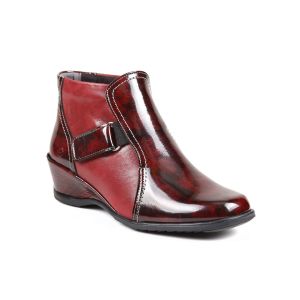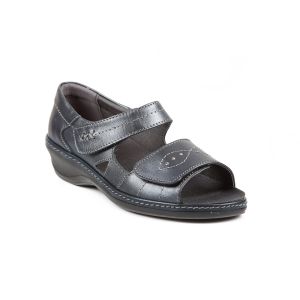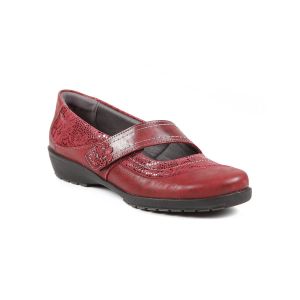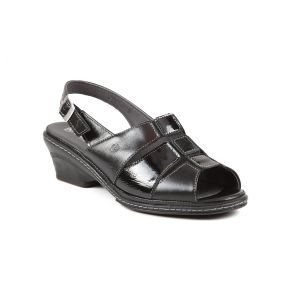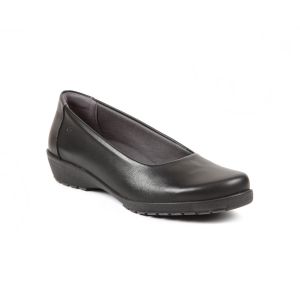We use cookies to make your experience better. To comply with the new e-Privacy directive, we need to ask for your consent to set the cookies. Learn more.
Shoes for Diabetics
If you have diabetes, you are at greater risk of developing problems with your feet, including foot ulcers and infections from minor cuts and grazes. This is because diabetes is associated with poor blood circulation in the feet, and blood glucose can damage the nerves.
To prevent problems with your feet, keep your nails short and wash your feet daily using warm water. Regularly check your feet for cuts, blisters or grazes because you may not be able to feel them if the nerves in your feet are damaged.
Wear shoes that fit properly and see a podiatrist or chiropodist (foot care specialist) regularly so that any problems can be detected early. Find a professional foot care specialist in your area. They will be able to fully advise you on the best way to look after your feet and give information on how to find suitable footwear that will not agrivate the condition.
At Suave we are specialists in producing shoes, sandals and boots that are suitable for the particular requirements of diabetes sufferers. Suave Shoes are ideally suited to diabetics' needs due to their super soft leather uppers, soft, breathable lining, lightweight construction and seam free design.
Correct footwear is a very important part of providing for diabetes. The longer a diabetic goes without properly caring for their feet, the worse their feet will become.
Many people who suffer from diabetes end up injuring themselves due to not following proper foot care and all it takes is a serious commitment to learning what diabetes does to your body and your lower limbs in particular and then taking steps to minimize the risks for tissue damage.
Without proper diabetic footcare, this condition is serious enough to cause foot ulcers, irritation, infections of the flesh and bone, hammertoes, bunions, and even amputation. There is no easy way out, but simply wearing the correct footwear can make a huge difference in your constant struggle to care for your feet.
Shoes for Diabetics need to have soft padded collars, wherever the shoe is in contact with the foot. Suave Shoes, have just that; the padding round the top line of the shoe ensures that the ankle and foot are protected from hard edges that could cut into the foot, or rub the foot and ankle.
Many of the styles in the Suave collection, feature virtually seam-free design, ensuring that there are no seams to rub the foot, particularly at the front of the shoe. The soft, breathable lining also helps to give maximum breathability, which is essential if you suffer from diabetes.
The especially soft 'toe-puff' in Suave shoes provides an extra deep and wide toe box to allow the toes to move freely and avoid rubbing, but ensures that there is no hard edge that can catch or cut the foot when putting your shoe on or off.
Persons who suffer from diabetes, often find that their feet swell during the day, which makes it difficult to find suitable footwear, as in the morning the shoes are too lose, and by the evening the shoes feel tight.
Suave Tip: See your GP if you suffer from diabetes and have a minor foot injury that doesn’t start to heal within a few days.
FURTHER INFORMATION
Diabetes is a lifelong condition that causes a person’s blood sugar level to become too high.
There are two main types of diabetes:
- Type 1
- Type 2
The high blood sugar level makes you:
- feel thirsty
- pass urine more than usual, particularly at night
- feel tired all the time
A growing problem
Type 2 diabetes is often associated with obesity and tends to be diagnosed in older people. It’s far more common than type 1 diabetes. It’s estimated that more than 1 in 16 people in the UK has diabetes (diagnosed or undiagnosed), and this figure is rising rapidly. There are currently 3.9 million people living with diabetes in the UK, with 90% of those affected having type 2 diabetes.
The danger of Type 2 DiabetesDiabetes can cause serious long-term health problems. It’s the most common cause of vision loss and blindness in people of working age. Everyone with diabetes aged 12 or over should be invited to have their eyes screened once a year for diabetic retinopathy.
Diabetes is also responsible for most cases of kidney failure and lower limb amputation (other than accidents). People with diabetes are up to five times more likely to have cardiovascular disease (such as a stroke) than those without diabetes.
What you can do
If you’re at risk of type 2 diabetes, you may be able to prevent it developing by making lifestyle changes. You should:
- eat a healthy, balanced diet
- lose weight (if you’re overweight) and maintain a healthy weight
- stop smoking (if you smoke)
- drink alcohol in moderation
- take plenty of regular exercise
If you already have type 2 diabetes, it may be possible to control your symptoms by making the above changes. This will also minimise your risk of developing complications.
As type 2 diabetes usually gets worse, you may eventually need medication (usually tablets) to keep your blood glucose at normal levels.




 Sign In
Sign In 
 Wish list
Wish list



